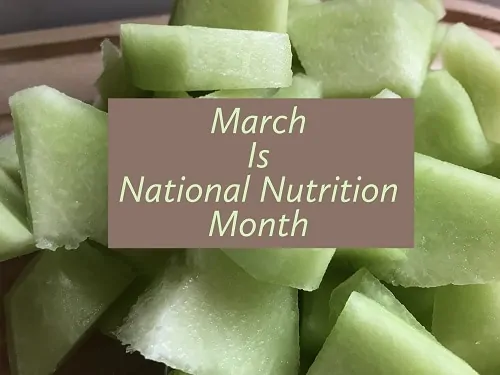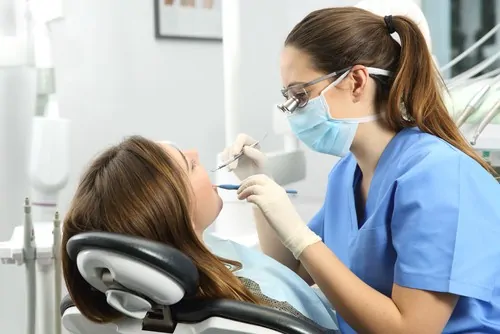Blog
Is Your Family Getting Enough Calcium?

Calcium is most commonly noted as being a crucial mineral for strong bone development. However, at our dental office in Douglasville we also know that calcium is an essential part of building strong and healthy teeth. But just how much calcium does your family need?
The Importance of Calcium
Before we dive into how much calcium each member of your family needs, let’s take a quick look at why a steady intake of it is important. Our bodies need calcium in order to function properly, and our systems will pull what they need out of what we have in our bones. In fact, the calcium found in bones and teeth is repeatedly removed, and it needs to be replaced. This is where eating a diet high in calcium helps replenish what’s lost. This is particularly important in young children when bones are developing and growing, and for older adults.
Calcium Doesn’t Stand Alone
We wouldn’t be giving you great advice if we didn’t tell you that a solid calcium intake is only half the battle. In order for the calcium to be absorbed and aid in tooth and bone development and strength, it needs vitamin D. Vitamin D is an essential vitamin, meaning your body relies on it to function. Make sure your family isn’t only eating a diet rich in calcium, but also vitamin D. Some foods that can help increase levels of vitamin D include:
- Dairy products
- Egg Yolks
- Fish such as salmon and herring
How Much Calcium is Enough?
The appropriate amount of calcium varies depending on age and gender. Here are the recommended daily doses according to the Food and Nutrition Board (FNB).
- 0-6 months = 200 mg
- 7-12 months = 260 mg
- 1-3 years = 700 mg
- 4-8 years = 1,000 mg
- 9-18 years = 1,300 mg
- 19-50 years = 1,000 mg
- 51-70 years = 1,000 mg for males, 1,200 mg for females
- 71+ years = 1,200 mg
Foods High in Calcium
When looking for calcium-rich foods, your Douglasville dentist wants you to consider going outside of the dairy aisle. There are plenty of non-dairy foods that pack a mean calcium punch including:
- Sardines
- Soymilk
- Orange juice
- Calcium-fortified cereal
Remember, besides eating a diet high in calcium, it’s also important to eat a variety of food groups at every meal.
At our Douglasville dental office, we’re in the business of taking care of your family’s smiles. One way to ensure a lifetime of strong, beautiful teeth is to get the recommended daily amount of vitamin D and calcium. And of course, we always recommend proper brushing and regular dental visits.
Good for the Body, Good for the Mouth

What we put into our bodies can certainly affect how we feel and how healthy we are. But eating the right foods to fuel your body goes beyond enhancing overall health. During this National Nutrition Month, your Douglasville dentist wants to let all of our patients know how proper nutrition can also benefit your oral health.
What Exactly is Proper Nutrition?
The basics of eating right include reducing your fat and sugar intake while upping the amount of nutrient rich foods. But how much of what things should you be eating? That’s where things aren’t so simple. Ever since the original Food Pyramid Guide was published by the United States Department of Agriculture (USDA) in 1992, nutritional recommendations have shifted two more times. The current standards are reflected in MyPlate and vary depending on age, gender, height, weight, and daily activity level. However, most of the common rules of thumb remain the same including focusing on eating plenty of:
- Fruits
- Vegetables
- Whole Grains
- Lean Proteins
- Dairy
How Does Good Nutrition Relate to Oral Health?
The body’s response to eating “bad” foods and drinks increases the likelihood of someone experiencing oral health issues and diseases. Let’s look at foods that are high in sugar, for example. Sweets and beverages like soda and even juices packed with sugar attack tooth enamel. If they’re not rinsed away or are left exposed to the teeth for long periods of time, they will work away at and erode the protective tooth layer. Without this barrier, teeth are more susceptible to cavities and sensitivity. Although almost every food contains some amount of sugar, even the good foods we’re supposed to eat, try your best to stay away from items that have added sugars and remember to read nutritional labels.
Beware of the Hidden Sugars
Sugar content in the sweeter foods that you choose for you and your family isn’t the only thing your dentist in Douglasville is wary of. There are hidden sugars everywhere, even in places that don’t taste sweet. Foods that contain a lot of carbohydrates can actually raise blood glucose levels and effect the body the very same way actual sugar does. Since these carbs end up breaking down into simple sugars, they put teeth at the same risk for decay as eating a sweet treat.
Eat Well, Protect Your Smile
At our dental office in Douglasville, we strive to keep our patients healthy by being a key member of their health care team. Encouraging a healthy, well-balanced diet is a great way to ensure not only a healthy body, but also a healthy mouth. If you’re looking to become a healthier version of yourself and get your smile in its best shape yet, we welcome you to schedule an appointment with us today.
National Pet Dental Health Month

Every February, the American Veterinary Medical Foundation (AVMF) sponsors National Pet Dental Health Month to raise awareness of the importance of proper dental care for our furry best friends. While our Douglasville dental office doesn’t treat these cuddly critters, we know a lot of our patients have pets, and we’d like to provide them tips on how to care for the furrier members of their families.
Brushing is Important for Pets Too
You know your dentist in Douglasville encourages each and every patient to brush their teeth twice a day, every day. Now while it’s not necessary to brush your pet’s teeth that often, it is important that you do it occasionally. Typically brushing two to three times a week will do wonders in keeping their mouths healthy. While brushing your pet’s teeth may be a challenge at first, doing it regularly can help make it a routine. When you start, take a piece of gauze and a pet-friendly toothpaste to gently massage your pet’s teeth in tight circles. This small step can really help reduce plaque and tartar buildup. But good brushing doesn’t end there. You should take your pet to get a professional dental cleaning once a year for a thorough job.
Encourage Chewing
We don’t necessarily mean that you let your pet take control of the house and nibble on anything he wants. But most vets do encourage you to let him chew on toys or treats specifically designed to help scrub away plaque. While bones may seem like the obvious choice, these tough treats can actually do more harm than good. In fact, chewing a hard bone increases the risk for dental damage. Instead, consider buying toys or treats that strengthen teeth, stimulate gums, and remove plaque and tartar. Whatever you and your vet choose, remember that brushing is still crucial for optimal oral health (this applies to you too!).
Know What to Look For
Just like humans, knowing the signs of a potential problem and seeking treatment sooner rather than later is key to successful treatment. What’s also similar between humans and animals are the signs of a dental concern. Keep an eye out for:
- Bad breath
- Loose teeth
- Discolored teeth
- Bleeding
If you notice any of the above in your pet, call your vet. If you notice any in yourself, call your Douglasville dentist.
Following the tips above and being open with your vet can help keep your pet’s teeth healthy for life. The same applies to you. Make sure to practice a proper oral health care routine and maintain regular visits at our dental office in Douglasville.
5 Signs That It’s Time to See a Douglasville Dentist

While we always recommend visiting your dentist at least every six months, there are times when people fall out of the habit and miss a few appointments. Oftentimes a move to a new city or even a fear of the dentist can make it all too easy to pass on seeing the dentist as often as you should. However, the team at our Douglasville dental office want you to know that there are a few signs and symptoms that you shouldn’t ignore…
It’s Like a Desert In Here!
Experiencing dry mouth isn’t only uncomfortable, it’s also concerning. Having periods of occasional dryness is normal, especially with some forms of medication. However, if it becomes an ongoing issue and you just can’t seem to quench the dryness, you may want to see your dentist. Chronic dry mouth leaves the mouth exposed to bacteria and increases the risk for decay.
There’s An Unpleasant Smell
Sometimes bad breath is unavoidable (think a garlicky pasta dish). But when bad breath becomes chronic, it can be concerning. Bad breath that doesn’t go away is a symptom of gingivitis, or early gum disease. If gingivitis isn’t treated quickly and effectively, it can easily progress into gum disease and lead to tooth loss and other serious health problems.
Red & Puffy Gums
Any gum discomfort or discoloration should raise some red flags for you. Gums are supposed to be a healthy shade of pink, painless, and are definitely not supposed to bleed. Any inflammation, soreness, or blood when you brush or floss are all signs that your dentist will want to know about as soon as possible. These symptoms may indicate gum disease which, if left untreated, can lead to whole body problems such as stroke, heart disease, and diabetes.
You’re Feeling Sensitive
We don’t mean emotionally sensitive, but rather the zinging surge of pain associated with tooth sensitivity. Whether you notice an increase in sensitivity with eating hot or cold foods or while brushing, it’s something you should bring to the attention of your dental team. Sensitivity may be caused by something as simple as brushing too hard, but it can also be a sign of eroding enamel receding gums, both of which need professional treatment to fix.
You Have a Toothache
The most obviously sign that it’s time to schedule an appointment with a dentist in Douglasville is suffering from the unique pain of a toothache. The uncomfortable feeling of tooth pain isn’t something you should ignore, and it probably won’t go away on it’s own. Getting in to see a dentist is the best way to determine the root of the problem and get you some relief.
If you’re experiencing any of the symptoms listed above, we recommend scheduling an appointment at our dental office in Douglasville sooner rather than later. Many of these dental concerns can be treated easily and successfully if caught early. Don’t let the problem continue to worsen. Call to schedule a visit today.
Does Whitening Toothpaste Really Whiten Teeth?

Whether due to aging, smoking, or drinking too much tooth-staining tea, there are plenty of things that can cause our pearly whites to be, well… not so white. If you’re one of the many people who are trying to score a whiter smile by using whitening toothpastes, our dental office in Douglasville wants you to read on…
3 Pros of Whitening Toothpaste
There can be some benefits using whitening toothpaste. Some of these positives may include:
- Effective Removal of Surface Stains. Most whitening toothpastes can effectively scrub away surface stains. So far, the stuff looks pretty good.
- Easy to Use. If you can use regular toothpaste, you can use a whitening toothpaste. Just dab a little on your toothbrush and gently brush twice a day.
- Most Affordable Option. At just a few bucks a tube, whitening toothpaste is appealing to many who are trying to get a whiter smile.
3 Cons of Whitening Toothpaste
However, using a whitening toothpaste isn’t all positive. While it may be effective, easy to use, and fairly cheap, there are also some disadvantages including:
- It Takes a Long Time to See Results. A key part of making whitening toothpaste work is using it regularly. This means brushing with it twice a day, every day. Even then it could take weeks to see a change in color.
- Could Cause More Harm Than Good. Whitening toothpastes are packed with abrasive ingredients. That’s another part of what makes it work. But it’s also what can cause damage. The abrasive texture of whitening toothpastes can wear away enamel, leaving teeth at risk for decay and sensitivity. Thinner enamel can also cause teeth to appear darker, which really isn’t the look we were going for.
- It May Not Work for You. Sometimes tooth staining goes deeper than the surface, making whitening toothpastes essentially ineffective. But don’t panic. Cosmetic dentistry such as dental veneers can still transform your smile.
Alternatives to Whitening Toothpaste
Even though whitening toothpaste tends to be the go-to option for getting a whiter smile, there are other things you can do to help get, and keep, your teeth pearly white.
- After drinking tea or coffee, rinse your mouth out with water.
- Stop smoking or using chewing tobacco.
- Eat more apples, cheese, or celery to gently rub away potential stains.
- Consider a professional smile whitening from your dentist in Douglasville.
The best way to whiten your smile depends on several things, and there is no one solution that’s right for everyone. To find out what will help get you a whiter smile, we welcome you to schedule an appointment our Douglasville dental office.
The Common Cold and Dental Health

When you’re dealing with a cough that just won’t go away, you’d give anything to make it stop. So you do what anyone battling the common cold would do and head to your nearest pharmacy to load up on the best over-the-counter cough syrup you can find. While this remedy can finally make your coughing ease up, there is a link between this soothing fix and cavities that your Douglasville dentist wants you to know about.
The Danger is in The Ingredients
Most cough medicines and cough drops contain ingredients that, although made to help treat your cold symptoms, can also be damaging to your oral health. Many of the top medicines designed to help suppress that chronic tickle in your throat contain sugar and alcohol – both of which can contribute to tooth decay and other problems.
Sugar
Sugar is a common ingredient in many medicines for one reason – to make them not taste so horrible. However, these sugars are just the thing that bacteria love to feed on. When bacteria feed on sugars, they release a acidic byproduct. This acid wears away the protective tooth enamel and leave teeth exposed to decay.
Alcohol
A healthy mouth is one that produces saliva adequately and remains moist throughout the day. This saliva helps neutralize and rinse away acids caused by the sugar-eating bacteria. However, when alcohol is introduced into the mouth, saliva production is greatly decreased. Alcohol is naturally drying and inhibits your mouths ability to produce as much saliva as it should. A dry mouth is the perfect place for acid to wear away enamel, increasing the likelihood of decay.
Reduce the Risk
Just because your favorite cough medicine may contain these damaging ingredients doesn’t mean you have to suffer through your cold. There are a few ways you can reduce the risk of tooth decay and still find relief..
- Take your medicine with food. Saliva production increases while eating so it can help wash away dangerous sugars and acids.
- Avoid taking cough medicine right before bed. If you take medicine after you brush your teeth, the sugars and acids stay on your teeth all night.
- Try a pill form of the medicine instead of a liquid. A pill reduces the amount of damaging ingredients that come in contact with teeth.
At our dental office in Douglasville, it’s our mission to keep our patients healthy, especially during cold and flu season when germs are aplenty. Even if you try every trick in the book to keep germs at bay, sometimes catching the dreaded sore throat, stuffy nose, or constant cough is inevitable. When this happens, we want you to be cautious of how you ease the symptoms to keep your smile healthy.
Your Douglasville Dentist Says, “Eat Chocolate!”

We’ve got some fantastic news for all of our patients and neighbors with an active sweet tooth! It may come as a surprise, but the team at our Douglasville dental office is telling everyone to go ahead and eat chocolate — for your smile’s sake! But before you head out to buy a dozen of your candy bars, keep in mind that not just any chocolate will do.
Dark Chocolate: The Secret Cavity Fighter
Recent studies conducted by researchers in the United States, England, and Japan show a strong correlation between dark chocolate its ability to ward off decay, cavities, and problem causing plaque. There’s even some evidence to support the idea that dark chocolate may be just as effective, or perhaps more-so, at fighting off cavities as fluoride. However, we’re not suggesting that you pass on your regular fluoride treatments. More research and testing is needed before we can make an absolute claim as to effectiveness of dark chocolate.
Why Dark Chocolate?
It’s not necessarily the dark chocolate itself that has all the oral health benefits. In fact, most credit is being given to compounds found within dark chocolate, or more specifically the cocoa bean husk. All of the beneficial compounds found in dark chocolate are incredibly unique in that they have the ability to fight off both bacteria and plaque. There are even talks of one of these compounds, CBH, becoming an active ingredient in some dental products such as mouthwash and toothpaste because of its benefits.
Why is This Good News?
When we eat anything that contains a lot of sugar, we put our teeth at risk for decay and cavities. As we snack on these sweet treats, sugar gets left behind in the mouth. But it’s not the sugar itself that causes the problem, it’s the bacteria that feed on the sugar. As bacteria fuel up on leftover sugar particles, they also release acid as a byproduct. This acid wears away the protective enamel, leaving teeth exposed to decay. What’s so unique and interesting about dark chocolate is that the bacteria and plaque fighting compounds counteract this process by eliminating bacteria from the beginning.
Remember, Not All Chocolate is Good Chocolate
It’s important to remember that these studies and beneficial oral health claims are limited to dark chocolate and do not include milk chocolate or white chocolate. Even so, not all dark chocolate is created equal either. Try to find dark chocolate with less than 8 grams of sugar per serving. If you can get your hands on organic dark chocolate, that’s even better. Besides having oral health benefits, dark chocolate is also loaded with antioxidants and can be beneficial to overall health too, so don’t shy away from snacking on it.
As always, it’s also important, to maintain a proper oral hygiene routine at home and visit our dental office in Douglasville twice a year for an optimally healthy mouth.
Find Relief From Your Dental Fear

Dental fear is incredibly common among adult Americans. In fact, an estimated 80 million Americans have some level of dental fear. While the team at our dental office in Douglasville certainly understands that being afraid of the dentist is a very real thing, we also always want to try our best to help our patients and neighbors understand how they can overcome that fear and, dare we say, start to enjoy visits to the dentist.
Top Causes of Dental Fear
Dental fear can be brought on by a number of different things, but some of the most common reasons include fear of pain, embarrassment, losing control, or a negative past experience. It’s important for you and your dental team to work together to try to identify the source behind your fear so you can work better together to overcome it.
4 Ways to Ease Dental Fear
Talk About It. Perhaps the most important way to combat dental fear is to establish trust with your dentist in Douglasville. It may help if your dentist talks you through the appointment, letting you know exactly what is going to happen next and what you should expect. Discuss your concerns with your dental team to find what works best for you.
Distract Yourself. We understand that lying down in a dental chair while we poke around in your mouth can cause some people to feel uneasy, and that’s ok. Instead of focusing on what we’re doing, it may help to have a distraction handy. Consider bringing some music and headphones to your next visit or talk with your dental team to see if they have any amenities you can take advantage of.
Just Breathe. Practicing breathing techniques and focusing on breathing patterns has been proven to lower anxiety levels. There are numerous instructional videos online and even some courses you can take to help you. But essentially, close your eyes, take deep breaths, filling the lower part of your belly, and steadily release.
Bring a Friend. If it’s your first dental visit in awhile, have a trusted friend tag along with you. The presence of a trusted person can go a long way in helping you feel relaxed. Make a date out of it and treat them to lunch afterwards.
We Know You Can Do It
Maintaining regular dental cleanings and checkups every six months can be especially hard for those with dental fear. But keeping up with these visits is crucial for good oral health and to avoid more in-depth treatment in the future. Bi-yearly dental appointments help identify and treat any potential problems early and are key to keeping your mouth pain-free and cavity-free.
Whether it’s been awhile since you’ve seen a dentist due to dental fear, or even if you’re just searching for a new dental home, we welcome you to call our Douglasville dental office to schedule an appointment. Our entire team is dedicated to treating each and every patient with the gentle care they deserve and we’d be happy to work with you on easing any fears you may have.
Happy National Dental Hygiene Month!

October is commonly recognized as the month packed with pumpkins, scarecrows, trick-or-treaters, and all things Halloween. At our dental office in Douglasville, October has another important meaning that’s near and dear to our hearts; it’s National Dental Hygiene month – when we recognize our dedicated dental hygienists and bring awareness to the importance of proper oral health.
The Daily 4
Sponsored by the American Dental Hygienists’ Association (ADHA) and the Wrigley Oral Healthcare Program (WOHP), National Dental Hygiene Month has a different focus every year. In 2017, the theme is meant to drive awareness to the main components of a proper oral health routine including:
- Brushing
- Flossing
- Rinsing
- Chewing
The hygiene team that works closely with your dentist in Douglasville is dedicated to educating patients on the importance and proper techniques of these four crucial activities for a healthy mouth. Let’s take a closer look at each one…
Brushing
We’re all taught from an early age to brush our teeth before heading off to school in the morning and prior to hopping into bed at night. This lesson should follow us throughout our entire lives. But it’s not only important to brush every day, it’s crucial that you brush correctly every day. To make sure you’re getting the most out of your routine, always brush twice a day for two minutes each time and use gentle circles with your soft-bristled toothbrush.
Flossing
Brushing is only half of a healthy at home oral hygiene routine. You should absolutely floss in between each tooth every day. If you don’t, you leave about 35% of each tooth’s surface uncleaned and exposed to the dangers of decay.
Rinsing
Besides brushing and flossing, using a mouthwash that’s approved by the American Dental Association (ADA) can enhance your oral health. There are two types of mouthwash — cosmetic and therapeutic. Cosmetic mouthwash may temporarily mask bad breath but has no real oral health benefit, whereas therapeutic mouthwash with the ADA Seal of Acceptance has been tested to ensure it actually does what it claims, which is typically reducing bad breath, gingivitis, decay, and plaque.
Chewing
At our Douglasville dental office, we would love it if every one of our patients would brush their teeth after eating. But we understand that’s not always possible. Instead, we encourage patients to keep sugarless gum handy and chew it after meals. Chewing gum helps produce saliva, which then helps neutralize and rinse away bacteria left over from lunch. Just make sure it doesn’t contain sugar and look again for the ADA Seal of Acceptance.
These Daily 4 activities can go a long way in keeping your smile healthy. But even if you follow them exactly it’s still crucial to maintain your professional dental cleanings and bi-annual checkups. Regular dental visits help remove plaque and tartar and can help catch any potential problems early when treatment is still easy and more effective.
How to Choose a Dentist in Douglasville

Whether you’re new to the area or just looking for a new dentist, choosing the right practice for yourself and your family can be an intimidating process. It’s important to know that not all dentists will be a good fit for your unique needs. But don’t worry, there’s a practice just for you, and we’d like to help you find it.
Do Your Research
The first step to finding the best dentist in Douglasville for your family is to do a bit of research. Ask friends, family, neighbors, or coworkers who they trust with their dental care. Then, compile a list of each and every one. Consider how close to work or home you’ll want the office to be and hop online to look into the office specifics. What services do they offer? What do their reviews say? Narrow down your list to a few that hit your most important criteria and pick up the phone and call them.
Ask Questions
Once you get someone on the phone, use this opportunity to ask questions and get a feel of the personality of the practice. Some questions you should consider include:
-
- What should I expect during my first visit?
- How does the dentist keep up with new technology or training?
- Will my treatment plan and financing options be discussed with me?
Having a conversation with a team member in the office can reveal a lot about the dentist and the practice. The team member should answer pleasantly and be willing to answer any questions you have.
Schedule An Appointment
Once you think you’re ready to make a commitment to one of the dentists you called, it’s a good idea to make an initial appointment and use that visit as a ‘test’ to make sure that you’re comfortable, that you’re treated well, and that the office is clean. At this visit, you should have the opportunity to meet with the dentist so he or she can get to know about your health history, any concerns you may have, and what your oral health goals are. Your first visit should also include a thorough examination of your teeth and gums, an oral cancer check, and any necessary x-rays.
Searching for a new dentist in Douglasville is no easy task. You’re looking for someone who can treat your family the way you want to be treated and who makes you feel comfortable. And even though there are plenty of dental offices to choose from, following the tips above can help make the search easier and ensure you find the right practice for you.
Of course, if you’d like to visit our Douglasville dental office, we always welcome you to give us a call. We’ll be happy to answer any questions you may have to help you to find the best dentist for you.
